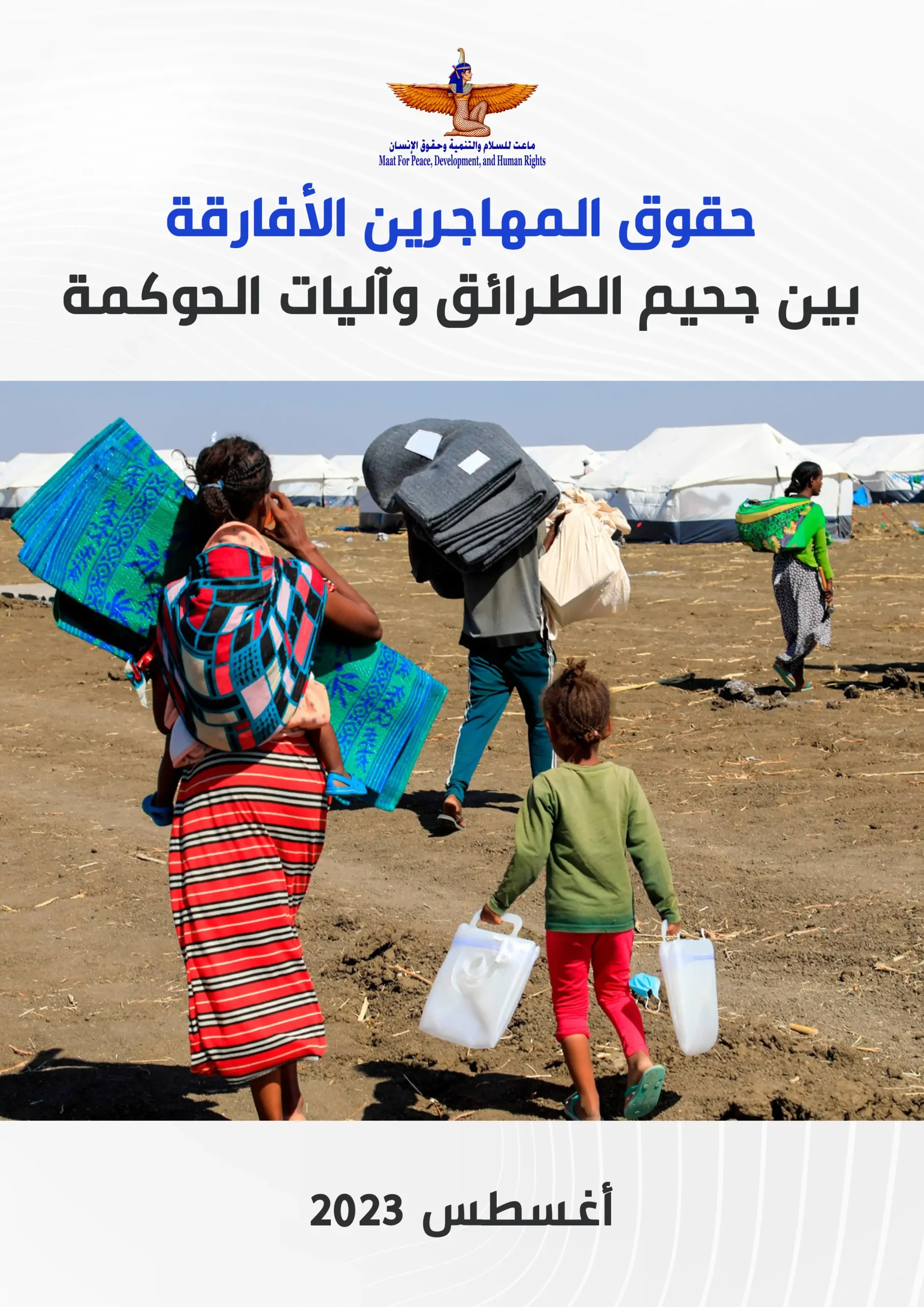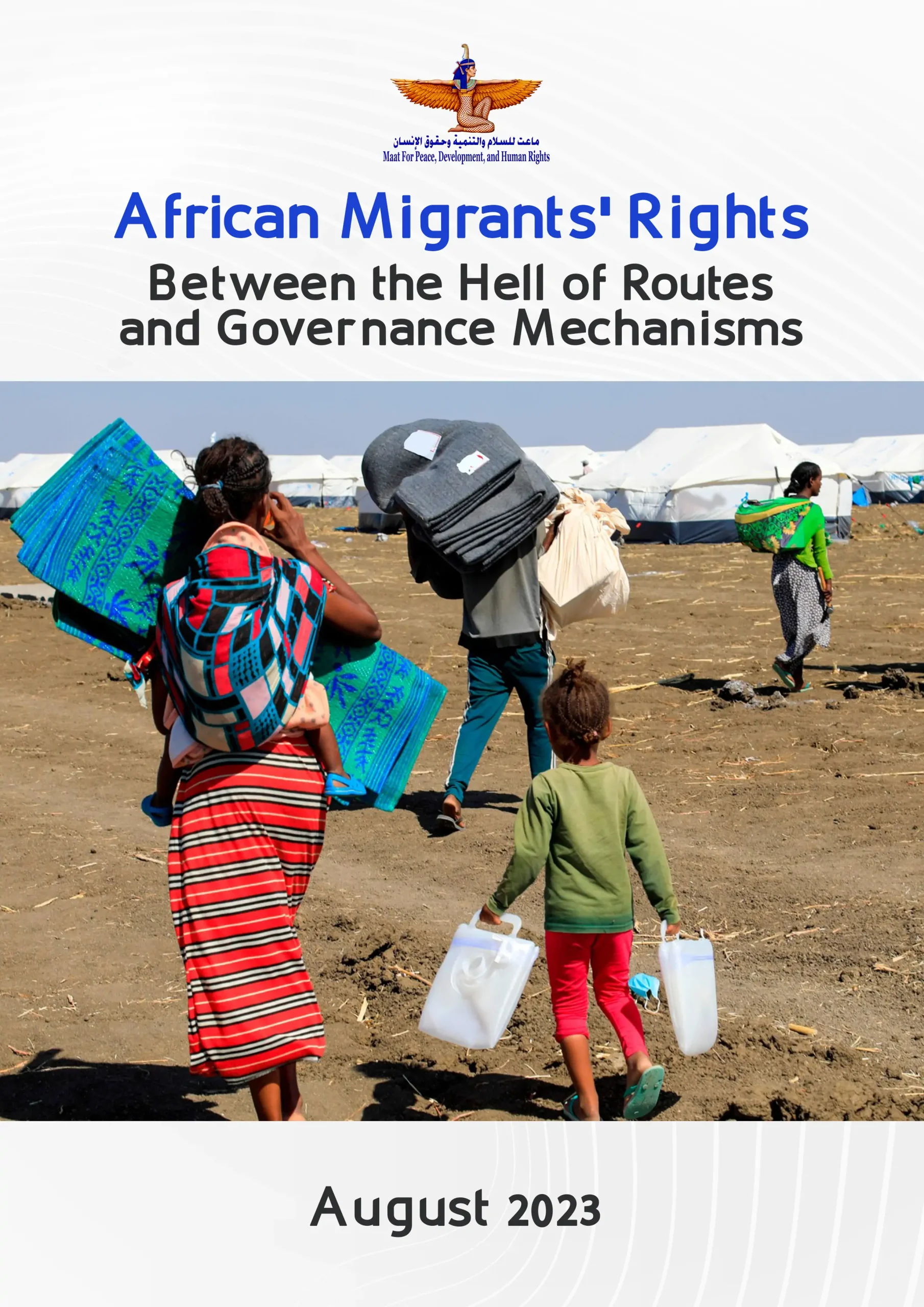Maat: Rights of African Migrants Remain Trapped Between the Hell of Routes and Governance Mechanisms
Okeil: We recommend European countries to reconsider their migrant-related programs and strengthen South-Med partnerships
Gharib: We call on the governments of the countries of transit and destination to launch anti-Black racism programs
The variables of the international system expose the phenomenon of migration; both regular and irregular. Approximately 281 million migrants, equivalent to 3.6% of the world's population, are staying outside their home countries for various reasons such as political, economic, social, and security considerations, which in turn puts additional pressure on host countries, particularly African ones. Statistics reveal that there are currently about 21, 11, 5, and 3 million migrants inside Africa, Europe, the Middle East, and North America, respectively.
Maat for Peace, Development, and Human Rights has recently released a study entitled "African Migrants' Rights: Between the Hell of Routes and Governance Mechanisms", with the aim to promote the rights of vulnerable and marginalized groups, focusing on African migrants. The Study sheds light on the deadly migration route from North Africa to Europe, particularly Britain and Germany.
The Study provides a definition of the concept of migration governance, lists its legal frameworks: international and African, draws a map of the statistics of migrants from the African continent, monitors the human rights of migrants across the whole journey, and provides a framework and vision for the governance and activation of African migration along with a set of recommendations in this regard.
Speaking of migration in Africa, Ayman Okeil, an International Human Rights Expert and Chairman of Maat for Peace, Development and Human Rights, pointed out that Africa is a dynamic continent; the migration phenomenon has reached a record level exceeding 40 million African migrants since the beginning of 2023. Undoubtedly, these migrants and their families are subject to exploitation, torture, slavery, kidnapping, as well as sexual and physical violence throughout their deadly journey by transit and destination governments in addition to forced deportation.
Despite the human rights obligations imposed by the international, regional, and national frameworks, as well as government policies and sustainable management of migration, "Okeil" explained these efforts have not been effective for African migrants. Europe hosts about 11 million African migrants, who are exposed to risks of lack of protection, refoulement, and racial discrimination.
In the UK, for example, black people are stopped at least 6 times as many as white people, and more than 60% of black people, including African migrants and people of African descent, do not have access to quality health care. Okeil recommended the governments of European countries to reconsider their migration systems on the Mediterranean route and their South-Med partnerships, especially Libya and Tunisia, and evaluate their effects on migrants and their consistency with human rights obligations.
Sayed Gharib, a researcher at the Sustainable Development Unit at Maat, confirmed that the rights of African migrants, like others, are captive to the societal norms and stereotypes prevailing in Europe by the extreme right, as well as discourses of discrimination, hatred, populism and discrimination. More than 11:15 Africans suffer from human rights violations due to their dark skin.
Gharib explained that there is currently no clear policy specifically addressing discrimination and racism against people of African descent, rather they are often referred to as "invisible minorities" without proper recognition. Accordingly, Gharib suggested that transit and destination countries implement programs to combat hatred and racism against migrants. Besides, he stressed the need to exert more efforts to prevent cultural, partisan, and media institutions from promoting racism, discrimination, and racial profiling against Africans. Furthermore, he emphasized the importance of correcting the perception of African migrants.
It is worth noting that the file of migrants and the promotion of the conditions of vulnerable and marginalized groups are among the files of interest to Maat. Therefore, this Study is an outcome of the symposium held by Maat on August 15, entitled "Governance of Migrant Issues in Africa: Objectives and Implementation Mechanisms”, in the framework of the preparation for the 77th session of the African Commission on Human and Peoples’ Rights. The issue of migration inside and outside Africa is one of the topics of interest to the African Commission on Human and Peoples’ Rights, represented by the mandate of the Special Rapporteur on Refugees, Asylum Seekers, Migrants and Internally Displaced Persons, which cooperates with Maat continuously.

 |
 |











